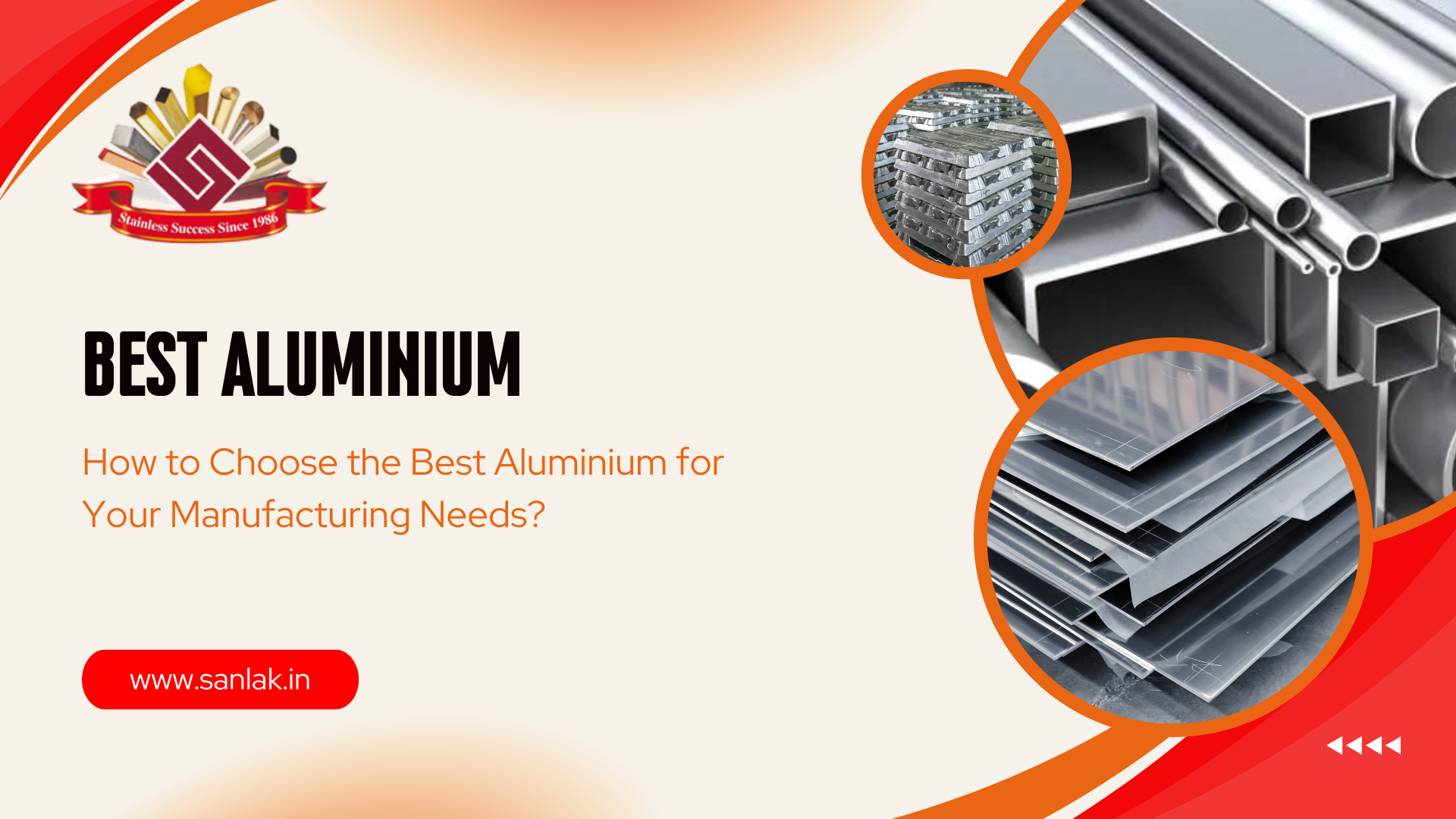
How to Choose the Best Aluminium for Your Manufacturing Needs
Introduction: Why Choose Aluminium?
Aluminium is a top choice in manufacturing due to its lot of advantages over other metals. Its kind of key properties makes it ideal for a lot range of applications, from aerospace to everyday products. Understanding these benefits helps in making right decisions for your projects.
Benefits of Using Aluminium in Manufacturing
Aluminium is lightweight, that’s why it’s making easy to handle and transport. It’s durable and resists rust, perfect for hard conditions. It can be shaped into lot of forms, from detailed designs to strong structures. And also it’s recyclable, that’s why it helps the environment and cuts down the waste.
Key Properties That Make Aluminium a Top Choice
Aluminium is powerful but light, making it easy to work with. It conducts heat and electricity well. It’s flexible, so it can be shaped into intricate designs. It also has a sleek, modern look that is both functional and attractive.
Which Aluminium Alloy is Best for Your Specific Application?
Choosing the right Aluminium alloy is crucial for the success of your project. With countless options available, it can be overwhelming to determine the best fit. This guide will help you understand the key factors to consider and select the ideal Aluminium alloy for your specific needs.
Key factors to consider:
When choosing an Aluminium alloy, consider the following: Determine the required strength and load-bearing capacity, check if corrosion resistance is needed for harsh environments, and decide if weight is a priority. Also, assess how easily the Aluminium can be shaped or welded, and stay within your budget. These factors will help you select the right alloy for your needs.
Understanding Aluminium Alloys:
Aluminium alloys are classified into different series based on their composition and properties. Each series has its own strengths and weaknesses.
1xxx Series: Pure Aluminium with good corrosion resistance and ductility.
2xxx Series: High strength but poor corrosion resistance. Often used in aerospace applications.
3xxx Series: Good formability and weldability, often used in food and beverage containers.
4xxx Series: Excellent weldability, commonly used in welding rods and filler metals.
5xxx Series: Good corrosion resistance and strength, often used in marine applications.
6xxx Series: Excellent formability and good corrosion resistance, widely used in architectural applications.
7xxx Series: Highest strength Aluminium alloys, often used in aerospace and defense industries.
By carefully considering these factors and understanding the properties of different Aluminium alloys, you can make an informed decision that meets the specific requirements of your project.
How to Evaluate Aluminium Suppliers
Choosing the right Aluminium supplier can make a big difference for your project. Here’s a simple guide to help you:
1. Check Their Reputation: Look for customer reviews or ask other businesses about their experiences. A good reputation usually means reliable service and quality products.
2. Verify Product Quality: Ensure the Aluminium meets industry standards. Ask for certifications or samples to test the quality yourself.
3. Assess Their Product Range: Make sure the supplier offers the types and sizes of Aluminium you need. A wide selection can help you find exactly what you’re looking for.
4. Compare Pricing: Get quotes from different suppliers. Remember, the lowest price isn’t always the best—consider quality and service too.
5. Consider Delivery and Service: Check how quickly they can deliver and their level of customer support. Reliable delivery and good support are key to keeping your project on track.
6. Review Communication: A good supplier should communicate clearly and be responsive to your questions
What Are the Best Practices for Choosing Aluminum?
To choose the best Aluminium for your project, follow these practices:
Common Mistakes to Avoid: Don’t overlook the importance of understanding your project's specific needs, like strength and weight. Avoid choosing an alloy solely based on price; it’s essential to balance cost with quality. Don’t ignore the environment where the Aluminium will be used—make sure it’s suitable for those conditions.
Expert Tips for Making an Informed Decision: Start by clearly defining your project’s requirements. Consult with suppliers or experts to understand which alloys are best suited for your needs. Check the quality of Aluminium through certifications or samples. Compare options and get multiple quotes to ensure you’re getting good value. And always choose a reputable supplier known for reliability.
By avoiding common pitfalls and following these expert tips, you’ll be better equipped to select the right Aluminium for your project.
Conclusion
For your final decision, make sure to select an Aluminium that meets all your requirements and fits your budget. If you need expert advice and reliable materials, Sanlak is a great choice. They can help you find the best Aluminium for your needs and ensure your project is successful.
By keeping these points in mind and getting the right support, you’ll make an informed decision and achieve great results with your Aluminium selection.
